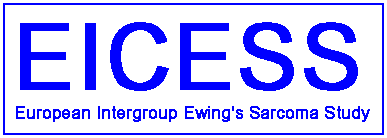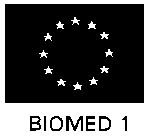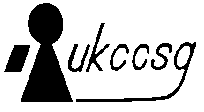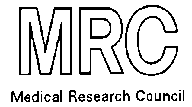European Intergroup Cooperative Ewing's Sarcoma Study


Please note: the EICESS'92 Trial is now closed to entry.
This page remains on-line for historical interest only.
Contents
 About the EICESS group
About the EICESS group
 About Ewing's Sarcoma of Bone
About Ewing's Sarcoma of Bone
 About the EICESS '92 trial
About the EICESS '92 trial
 About the participating groups (GPOH, UKCCSG,
MRC)
About the participating groups (GPOH, UKCCSG,
MRC)
Note to patients: Remember treatment protocols and health
care systems vary from country to country. It is always best to first discuss
your concerns and information needs with your doctor who is familiar with
your specific details.
Disclaimer: this page has been written for educational
purposes only, it can not be used for diagnosing or treating a health problem
or a disease. If you / your child have or suspect you or your child may
have a health problem, you should consult your doctor.
If you have any comments about this page please send an Email to
Simon Cotterill
![[]](redball.gif) About the EICESS
Group
About the EICESS
Group
Study Chairmen: Prof. Alan Craft (UK), Prof. Herbert
Jurgens (Germany).
The European Intergroup Cooperative Ewing's Sarcoma Study (EICESS)
was formed in 1992. This is a collaboration of groups in Germany (GPOH),
the UK (UKCCSG / MRC), and elsewhere. The aims of the group are to provide
the best possible treatment for patients, and to improve survival and advance
understanding of Ewing's sarcoma through large randomised clinical trials.
The EICESS'92 trial was funded by a BIOMED-1 grant.
![[]](redball.gif) About Ewing's
Sarcoma of Bone
About Ewing's
Sarcoma of Bone
Ewing's sarcoma is a type of bone cancer found in children
and young adults. The peak incidence is between ages 10 and 20, it is less
common in children under 5 or in adults over 30. Ewing's s can occur in
any bone in the body; the most common sites are the pelvis, thigh, lower
leg, upper arm, and rib. Diagnostic imaging (X-rays, MRI scans etc). will
be used to show the exact site and size of the tumour and check to see
if the tumour has spread elsewhere. A tiny sample of the tumour is taken
(biopsy) for examination by a pathologist who will make the diagnosis.
Patients will receive surgery and / or radiotherapy to the main tumour.
Chemotherapy is needed to kill cancer cells that are circulating around
the body away from the main tumour.
![[GIF]](folder.gif) Go to Bone Cancer FAQ
Go to Bone Cancer FAQ
![[GIF]](folder.gif) Go to WWW Resources for Ewing's Sarcoma (Guide to Internet Resources
for Cancer)
Go to WWW Resources for Ewing's Sarcoma (Guide to Internet Resources
for Cancer)
![[GIF]](folder.gif) Go to WWW Resources for Ewing's Sarcoma (Children's Cancer Web)
Go to WWW Resources for Ewing's Sarcoma (Children's Cancer Web)
![[]](redball.gif) About the EICESS
'92 Trial
About the EICESS
'92 Trial
EICESS '92 is a randomised clinical trial. In order
to improve the prospects for people who develop cancer doctors are constantly
seeking new methods of treatment. In order to assess whether any new treatment
is better than the standard treatment randomised trials are run in which
half of the patients get the standard treatment and the others get the
new. It is not known which is better, that is why the trial is needed.
Patients with small tumours (less than 100 mls) have the same initial
treatment but after surgery/and or radiotherapy half receive chemotherapy
with ifosfamide the other half with cyclophosphamide. It is not known which
treatment is best, it is the aim of the study to see if people can be cured
with less side effects.
Patients with larger tumours (more than 100 mls) and/or metastases
all receive identical treatment except that half will have an extra drug;
etoposide. It is not known which treatment is the best, the aim of the
study is to see if the chance of survival can be increased in spite of
the possibility of more side effects.
Between May 1992 and October 1999, 1,051 patients with Ewing's sarcoma
had been registered with the group. The trial is now closed to entry, a
new "Euro-Ewing's" trial is underway.
![[]](redball.gif) About the
Participating Groups
About the
Participating Groups
-
 Gesellschaft fur Padiatrische Onkologie und Hamatologie (GPOH)
Gesellschaft fur Padiatrische Onkologie und Hamatologie (GPOH)
 United Kingdom Children's Cancer Study Group (UKCCSG)
United Kingdom Children's Cancer Study Group (UKCCSG)
 Medical Research Council (MRC)
Medical Research Council (MRC)
 Other Participants
Other Participants
![[GIF]](gpoh.gif)
![[]](redball.gif) The Gesellschaft fur Padiatrische Onkologie und Hamatologie (GPOH)
The Gesellschaft fur Padiatrische Onkologie und Hamatologie (GPOH)
The GPOH is the specialist
group of doctors who treat children's cancer in Germany. The GPOH has run
two earlier studies for Ewing's sarcoma in conjunction with some other
centres in Europe forming the CESS group. A central office was established
in Munster for running clinical trials in Ewing's sarcoma and for providing
centralised radiotherapy planning for GPOH centres. The GPOH is supported
by Deutsche Krebshilfe.
 Go to the GPOH Home Page
Go to the GPOH Home Page
![[GIF]](folder.gif) Go to the Deutsche Krebshilfe Home Page
Go to the Deutsche Krebshilfe Home Page

![[]](redball.gif) The United Kingdom Children's Cancer Study Group (UKCCSG)
The United Kingdom Children's Cancer Study Group (UKCCSG)
The UKCCSG is the specialist
group of doctors who treat children's cancer in the UK and Eire. There
are 23 specialist paediatric oncology centres which treat about 80% of
childhood cancers in the UK. The group has a central Data Centre based
in Leicester.
The UKCCSG is supported by the Cancer Research Campaign (CRC).
 Go to the UKCCSG Home Page
Go to the UKCCSG Home Page

![[]](redball.gif) The Medical Research Council (MRC)
The Medical Research Council (MRC)
The MRC has a number
of affiliated adult oncology centres, these include the two supra-regional
bone tumour services for the UK.
![[GIF]](folder.gif) Go to the MRC Home Page
Go to the MRC Home Page
![[]](redball.gif) The Joint UKCCSG/MRC BoneTumour
Working Group have run two earlier national studies for Ewing's sarcoma.
The joint working group collaborate in various international studies including
EICESS and trials of the European Osteosarcoma Intergroup (EOI). The working
group consists of specialists in medical oncology, paediatric oncology,
chemotherapy, surgery, radiotherapy, and pathology. Current chairman: Dr
Ian Lewis (Leeds).
The Joint UKCCSG/MRC BoneTumour
Working Group have run two earlier national studies for Ewing's sarcoma.
The joint working group collaborate in various international studies including
EICESS and trials of the European Osteosarcoma Intergroup (EOI). The working
group consists of specialists in medical oncology, paediatric oncology,
chemotherapy, surgery, radiotherapy, and pathology. Current chairman: Dr
Ian Lewis (Leeds).
![[]](redball.gif) Other Participants
Other Participants
Additional centres have participated in the EICESS study
including centres in the Netherlands, Austria, and Saudi Arabia.
Back to the Department
of Child Health Paed Onc Page
This page by Simon
Cotterill
North of
England Children's Cancer Research Unit
Department of Child
Health
University of Newcastle upon Tyne,
UK
First created: 03/96
Last modified:03/99
 About the EICESS group
About the EICESS group
 About Ewing's Sarcoma of Bone
About Ewing's Sarcoma of Bone
 About the EICESS '92 trial
About the EICESS '92 trial
 About the participating groups (GPOH, UKCCSG,
MRC)
About the participating groups (GPOH, UKCCSG,
MRC)


![[GIF]](folder.gif)
![[GIF]](gpoh.gif)

